
Radar | Jun 25,2022
Jul 13 , 2019
By TEMESGEN MULUGETA ( FORTUNE STAFF WRITER )
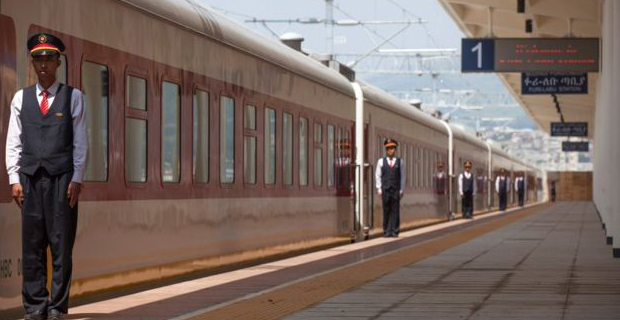 The Ethio-Djibouti Railway transports nearly 300 passengers a day between the countries.
The Ethio-Djibouti Railway transports nearly 300 passengers a day between the countries. The Ethio-Djibouti Railway, which ceased passenger transportation for three months due to a derailment accident, has fully resumed service.
The company sufferaed a derailment accident on April 4, 2019, in Fentale Wereda some 15Km from the town of Metehara in East Showa Zone of the Oromia Regional State en route to Djibouti from Addis Abeba. The accident caused an estimated 200 million Br in damage.
The accident led to the interruption of cargo freight for three weeks and passenger transport for three months. The passenger service was started three weeks ago after the operator, Ethio-Djibouti Standard Gauge Railway S.C. (EDR), issued preconditions that are to be undertaken during the winter months ahead of every train that travels over the tracks.
These pre-conditions include sending a maintenance train ahead of passenger trains to check safety conditions, suspending travel during rainstorm events and decreasing speed while crossing flood-prone areas where the derailment occurred.
The passenger service resumed operations, because the company has deemed the railway system to be capable and safe to transport passengers, according to Aminu Jawar, planning manager at EDR, which has 400 permanent workers and 500 contract workers and operates with 31 freight locomotives that are used for pulling trains and three passenger coaches.
“To prevent similar accidents from happening again, we have increased our safety checks and conducted an assessment of the entire Ethio-Djibouti line,” Aminu said. "The preconditions are also a justification for minimising accidents."
On a daily basis, the system transports nearly 300 passengers to and from Ethiopia and Djibouti.
At the time of the accident, the train was being operated by three Ethiopians and one train conductor from Djibouti, who started their training on July 9, 2018.
The railway system was built by China Civil Engineering Construction Corporation (CCECC) and China Railway Engineering Corporation (CREC). CCECC constructed the 317Km segment from Sebeta to Mieso, as well as the 100Km segment from the border town of Dawale to the Port of Djibouti - Doraleh Multipurpose Port and Doraleh Container Terminal and Oil Terminal. CREC built the 339Km line that extends from Mieso to Dawale.
The railway, which cut travelling time between Djibouti and Addis Abeba from three days to 12 hours, was built for 4.2 billion dollars, with 70pc of the financing secured from the Export-Import Bank of China.
China Railway Engineering Corporation and China Civil Engineering Construction Company, which built the railway, were retained to manage and run the railway system by Ethio-Djibouti Railway for six years at an annual fee of 60 million dollars.
EDR was established in April 2017 by a bilateral agreement signed on December 16, 2016, between Ethiopia and Djibouti.
Henok Semaw, dean of business & economics at Harmaya University, criticised the company for taking three months to resume operation.
“It could have repaired the damage more quickly,” Henok said. "This shows that the company has to work toward building its capacity to respond to accidents immediately."
Henok also says that the incident would leave a negative impact on the trustworthiness of the railway system.
PUBLISHED ON
Jul 13,2019 [ VOL
20 , NO
1002]

Radar | Jun 25,2022

Radar | Sep 14,2025
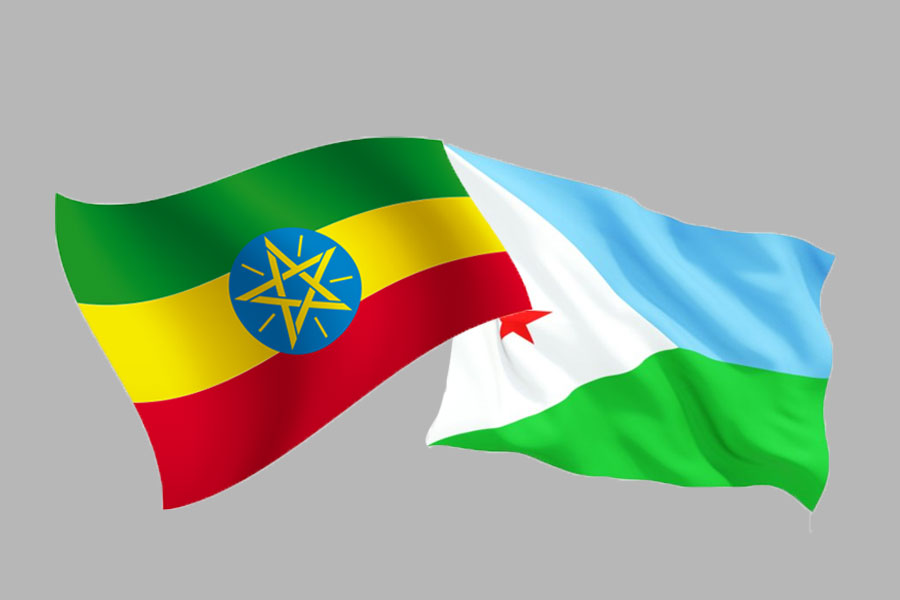
Fortune News | Dec 19,2020
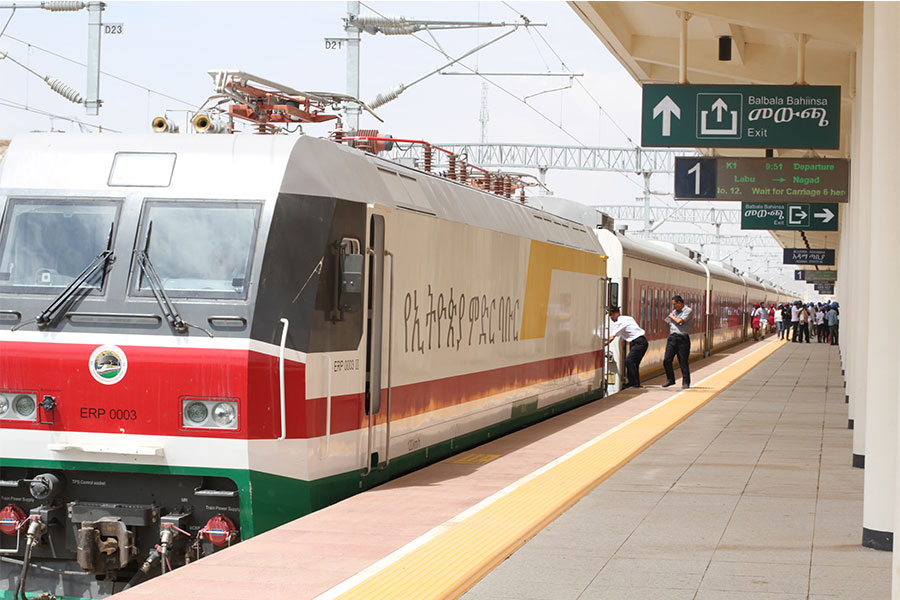
Fortune News | May 18,2019

Radar | Aug 10,2019
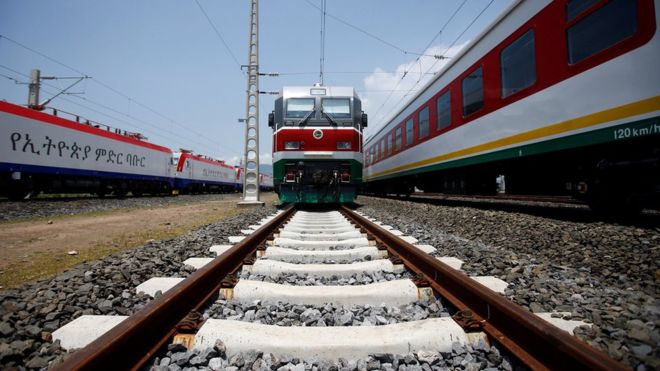
Fortune News | Jul 06,2019

Commentaries | Jan 11,2020
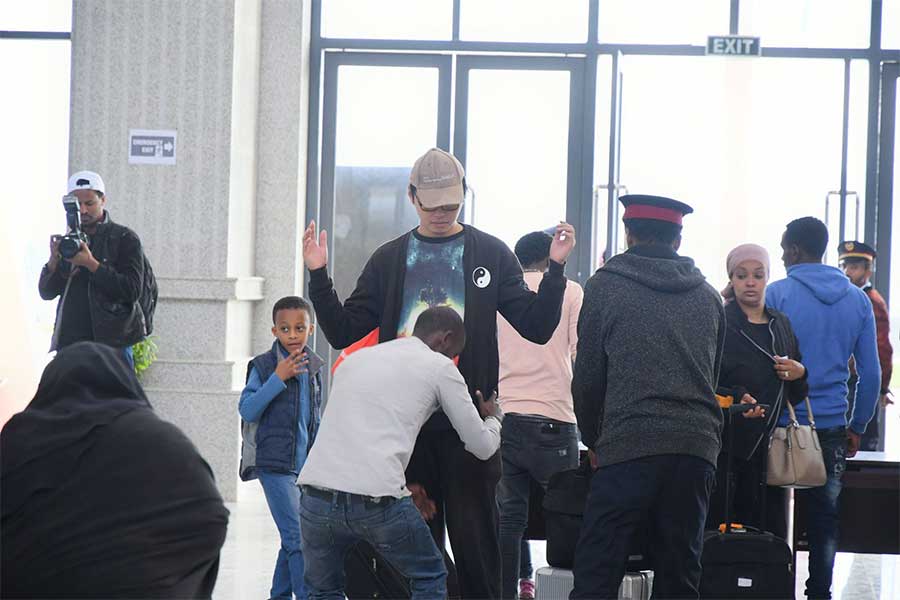
Featured | Sep 14,2019

Radar | Apr 03,2023

Commentaries | Feb 22,2020

Dec 22 , 2024 . By TIZITA SHEWAFERAW
Charged with transforming colossal state-owned enterprises into modern and competitiv...

Aug 18 , 2024 . By AKSAH ITALO
Although predictable Yonas Zerihun's job in the ride-hailing service is not immune to...

Jul 28 , 2024 . By TIZITA SHEWAFERAW
Unhabitual, perhaps too many, Samuel Gebreyohannes, 38, used to occasionally enjoy a couple of beers at breakfast. However, he recently swit...

Jul 13 , 2024 . By AKSAH ITALO
Investors who rely on tractors, trucks, and field vehicles for commuting, transporting commodities, and f...

Oct 18 , 2025
The political establishment, notably the ruling party and its top brass, has become p...

Oct 11 , 2025
Ladislas Farago, a roving Associated Press (AP) correspondent, arrived in Ethiopia in...

Oct 4 , 2025
Eyob Tekalegn (PhD) had been in the Governor's chair for only weeks when, on Septembe...

Sep 27 , 2025
Four years into an experiment with “shock therapy” in education, the national moo...